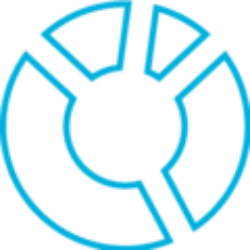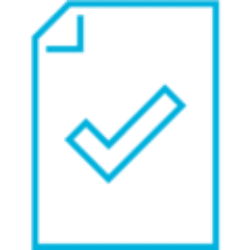cloud-infrastructure
5 secrets on creating a stand out CV
It is hard to stand out from the crowd right? Your CV is up-to-date, you’re saying all the right things, but you’re missing something because your phone isn’t ringing off the hook about new opportunities. Paul Norman, Managing Director Glocomms Europe, has a whopping 10 years of expertise under his belt and is here to help. Discover 5 of Paul’s top secrets on standing out to talent and recruitment managers, including how to get your CV looking top notch and how to make an impact after that coveted interview spot. 1) It’s a numbers gameLet’s just get the first and most obvious one out of the way. How you have improved sales is the biggest way to stand out amongst the crowd, so stuff your CV with as many impressive stats as possible. And we mean relevant metrics, not that you won the work Fantasy Premier League three years running (while impressive), but order values and average deal cycles.Metrics to include: Revenue you generated Average order value/deal sizeSize of the accounts/customers you’ve managed (for example enterprise or mid-market) Average deal cycleNumber of new accounts (% net new versus existing business) Number of expanded accounts2) Appearances matter Making your CV easy to digest is a quick way to get noticed. Pop all the key, meaty facts right at the top in an intro and skills section, starting with benefits rather than waffly features. It’s also crucial to beef up your LinkedIn profile when job hunting. Sounds basic but if you’re willing to celebrate your achievements publicly, this will help build your credibility to a potential employer, and they can feel confident that they’re accurate and truthful. #Humblebrag3) Get geeky – be an expertOnce you’ve shown your top line figures displayed in a good looking CV, it’s time for some context that makes you THE sales specialist to go to. You’ll be top of that pile of CV’s if you can add in territory management, and prove your expertise in certain sectors, so include: Regional expertise and the areas you’ve sold into, such as the UK, Europe, DACH, MENA, APAC, North America etc. Industry vertical specialisms – which sectors do you have specific experience in, for example energy, retail, technology etc. And finally, who you’ve been selling to. Who is your typical contact when selling, are they in marketing, finance, legal, operations etc. From the challenger sales model, identifying pain points, to customer centric selling, this is where you can also explain some of the styles and sales methodologies you excel in as well. Just a quick note here to make sure you can back all this expertise up. We’ve all heard of someone saying they can speak a language and then in the interview they get asked to use those said skills. Awkward. 4) Inject some personality Got an interesting hobby? Stick it in the CV. Some of the most interesting conversations I’ve had when interviewing often revert back to an unusual interest. And you never know, that hiring manager might be as passionate about karaoke, building Warhammer and flyfishing as much as you. Here is where talent professionals start to get an idea on the type of cultural fit you suit as well. Because we’re not just looking for a top seller, we are looking for some core values. As a general rule of thumb, most sales recruiters are looking for talent with genuine drive and enthusiasm. They also want evidence of resilience, adaptability, and an understanding of the meaning of success.5) Standing out IRLYou want to stand out for the right reasons in real life. I’m not just referring to a bright top either, but something a little more strategic. Showing you’ve done your research in an interview is basic, but one way to boost your profile post-interview (especially in a long process or with plenty of competition) is to reach out with value-adding information. I’ve seen candidates message the hiring manager afterwards with a relevant news story, or even about a potential lead they’ve spotted, demonstrating that you listened during the interview.Put these secrets to the test.Browse the newest tech sales jobs and send us your CV to take the next step in your career with Glocomms.Or simply get in touch with our team today:
Read More













